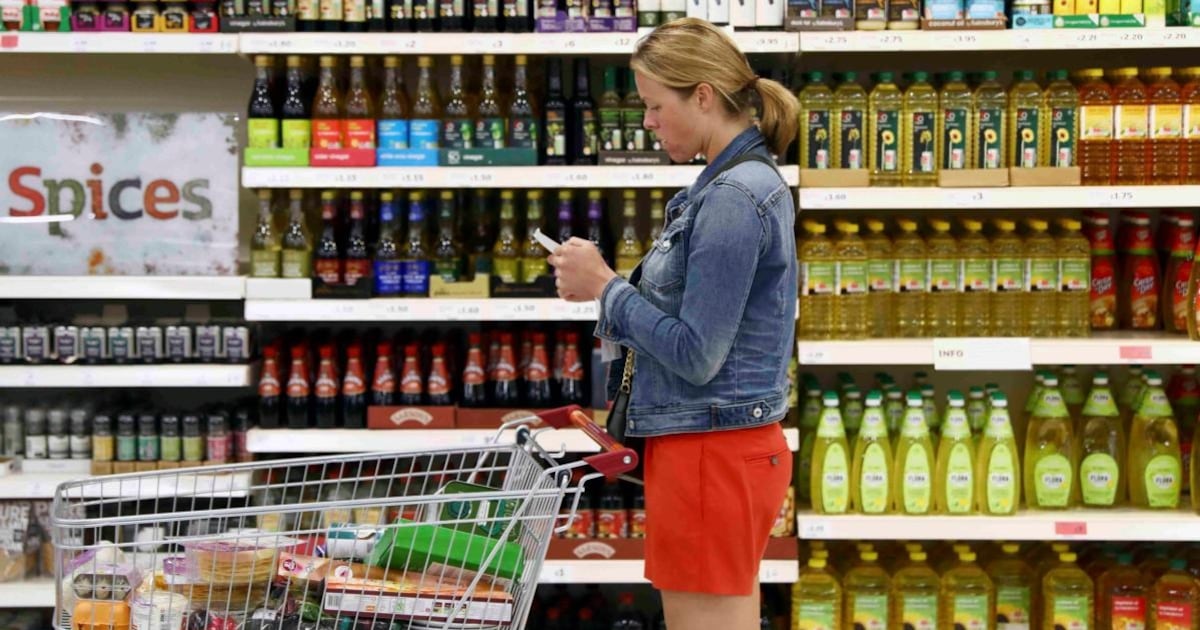Business
Food Price Inflation in Ireland Hits 20-Month High at 5%

Food price inflation in Ireland surged to a 20-month high of 5 percent in August 2024, as reported by the Central Statistics Office (CSO). This increase marks a significant rise in grocery costs, pushing overall inflation in the economy to 1.8 percent, up from 1.6 percent in July. The pace of food price inflation is now nearly three times the general rate of price growth.
The annual increase in food prices, reaching 5 percent, is the highest observed since December 2023. This surge is largely attributed to escalating agricultural output prices. Current farm costs remain high due to elevated prices for energy and fertilizers, which have inflated the costs of essential food items.
Energy and Transport Prices Decline
In contrast, other components of the harmonised index of consumer prices (HICP) showed a decline in August. Energy prices decreased by 0.3 percent for the month and fell by 0.1 percent compared to August 2023. Additionally, transport prices, which include airfares, dropped by 0.5 percent month-on-month and by 2.4 percent on an annual basis.
Excluding energy and unprocessed food items, the underlying rate of inflation is estimated to have increased by 1.9 percent since August 2023, indicating a complex economic landscape for consumers and businesses alike.
Concerns over Global Trade and Inflation Outlook
Alex Deaton, a junior dealer at fintech firm Ebury (Ireland), commented on the implications of these figures. He noted growing concerns about new tariffs from the United States, which are pressuring profit margins and potentially leading Irish businesses to pass increased costs onto consumers. This could exacerbate inflationary pressures as imported goods may become more expensive.
“While inflation in Ireland is currently below the euro zone average, the outlook remains uncertain,” Deaton stated. He highlighted the impact of ongoing global trade tensions, volatile commodity prices, and currency fluctuations, which are likely to keep Irish businesses vigilant in the coming months.
The latest inflation data from Ireland is set to influence broader euro zone figures expected to be released shortly. Financial markets anticipate that the European Central Bank (ECB) will maintain interest rates at their upcoming meeting in September. However, the potential effects of tariffs, currency variations, and a possible downturn in global trade complicate the interest rate outlook.
The rise in food prices not only affects economic indicators but also has a direct impact on consumers, who may feel the pinch in their daily expenses. As inflationary pressures continue, both businesses and households will be watching the economic developments closely.
-

 Top Stories2 months ago
Top Stories2 months agoTributes Surge for 9-Year-Old Leon Briody After Cancer Battle
-

 Entertainment3 months ago
Entertainment3 months agoAimee Osbourne Joins Family for Emotional Tribute to Ozzy
-

 Politics3 months ago
Politics3 months agoDanny Healy-Rae Considers Complaint After Altercation with Garda
-

 Top Stories3 months ago
Top Stories3 months agoIreland Enjoys Summer Heat as Hurricane Erin Approaches Atlantic
-

 World4 months ago
World4 months agoHawaii Commemorates 80 Years Since Hiroshima Bombing with Ceremony
-

 Top Stories2 months ago
Top Stories2 months agoNewcastle West Woman Patricia Foley Found Safe After Urgent Search
-

 Top Stories4 months ago
Top Stories4 months agoFianna Fáil TDs Urgently Consider Maire Geoghegan-Quinn for Presidency
-

 World4 months ago
World4 months agoCouple Convicted of Murdering Two-Year-Old Grandson in Wales
-

 World4 months ago
World4 months agoGaza Aid Distribution Tragedy: 20 Killed Amid Ongoing Violence
-

 World4 months ago
World4 months agoAristocrat Constance Marten and Partner Convicted of Infant Murder
-

 Top Stories3 months ago
Top Stories3 months agoClimbing Errigal: A Must-Do Summer Adventure in Donegal
-

 Top Stories3 months ago
Top Stories3 months agoHike Donegal’s Errigal Mountain NOW for Unforgettable Summer Views









